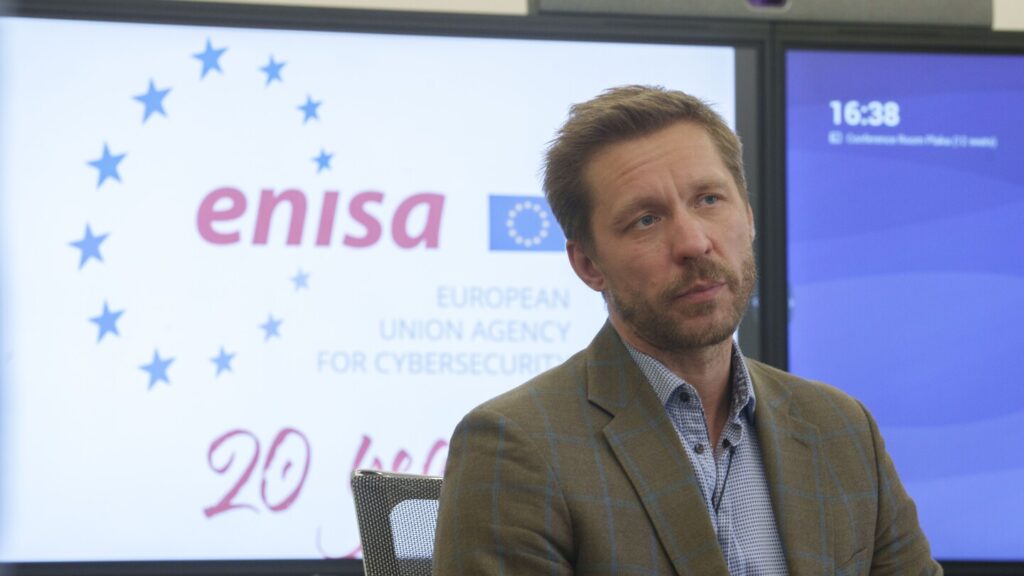ATHENS, Greece (AP) — A devastating Digital attacksCyber attacks in the European Union, many of which are linked to Russia-backed groups, have doubled in recent months and are also targeting election-related services, the EU's cybersecurity chief says.
Geopolitically motivated attacks have been steadily increasing since 2000, Juhan Lepassar, head of the European Union Cybersecurity Agency (ENISA), told The Associated Press in an interview. Russia's full-scale invasion of Ukraine February 24, 2022.
“The number of hacktivist attacks – threat actors whose primary goal is to cause disruption – against European infrastructure doubled between the fourth quarter of 2023 and the first quarter of 2024,” Lepassard said late Tuesday at CIA headquarters in Athens.
“That's a pretty big increase,” he said.
Citizens of the 27 EU member states can apply from June 6th to 9th. European Parliament The elections will also determine the election of the European Commission, the EU's executive arm. A search was carried out The European Parliament officials were arrested at their homes and offices in the parliament building in Brussels amid allegations of Russian interference. Several other countrieswarned security agencies about the threat of sabotage sponsored by hostile elements.
Over the past seven months, ENISA has led exercises and intensive consultations aimed at strengthening the resilience of EU election-related institutions. In its 2023 annual report, the agency noted a sharp increase in ransomware attacks and incidents targeting public institutions.
Lepassard said that although the attack techniques were not always successful, they were often tried out in Ukraine before being expanded to other EU countries.
“This is part of Russia's war of aggression, they are fighting physically in Ukraine, but also digitally across Europe,” he said.
Experts have warned that artificial intelligence tools are being used at an accelerating pace and on a larger scale to target Western voters using misleading or false information, including hyper-realistic video and audio clips known as deepfakes.
“Cybersecurity agencies in member states have also highlighted that AI-enabled disinformation and manipulation pose a major threat,” Lepassard said.
His comments echo a warning issued by the US director of national intelligence this month. Avril Haines Technological advances will enable more countries and groups to launch effective disinformation campaigns.
U.S. and European experts are helping security agencies anticipate emerging digital threats and vulnerabilities over the next decade, with ENISA identifying food production, satellite management and self-driving cars as areas needing attention.
Lepassard argues that cybersecurity inevitably needs to become second nature for designers and consumers.
“I believe we have a societal challenge ahead of us to understand digital security in the same way we understand security in our everyday transportation environments,” he said.
“When we're driving a car, we're aware of what's going on around us. We're paying attention,” he said. “We need to adopt those same behaviors and habits when we're driving in any digital environment.”
___ Follow AP's election coverage here: https://apnews.com/hub/global-elections


